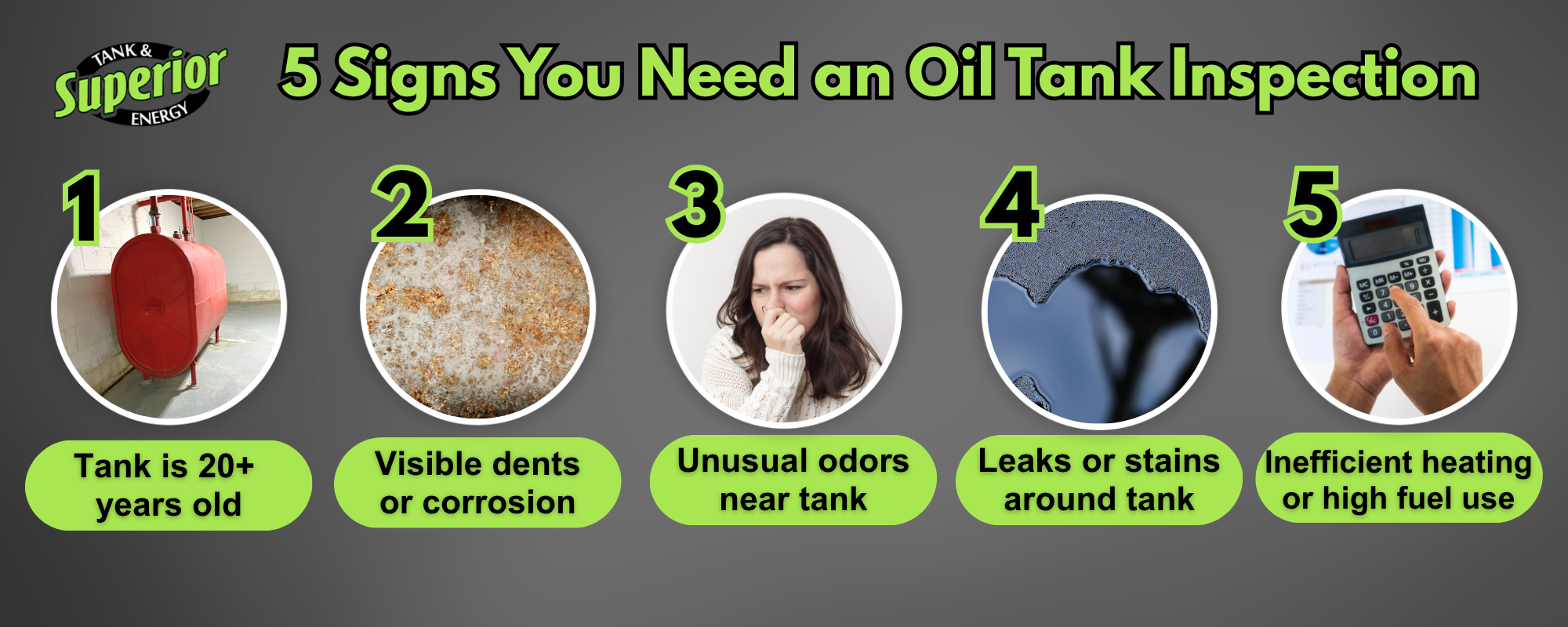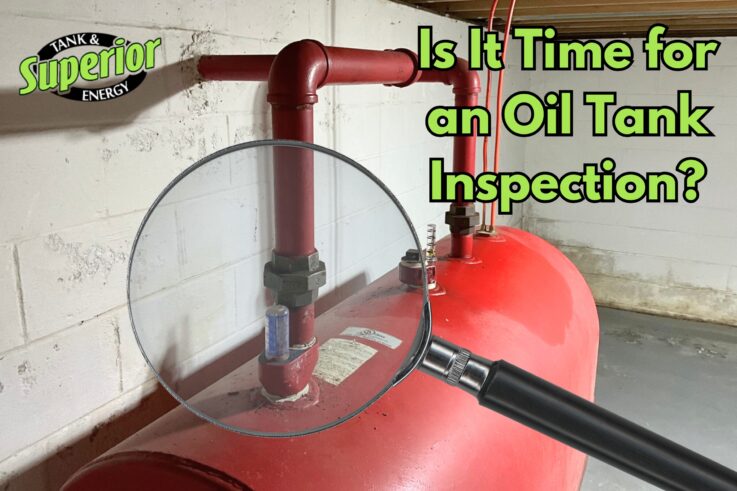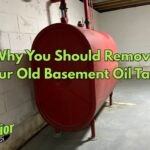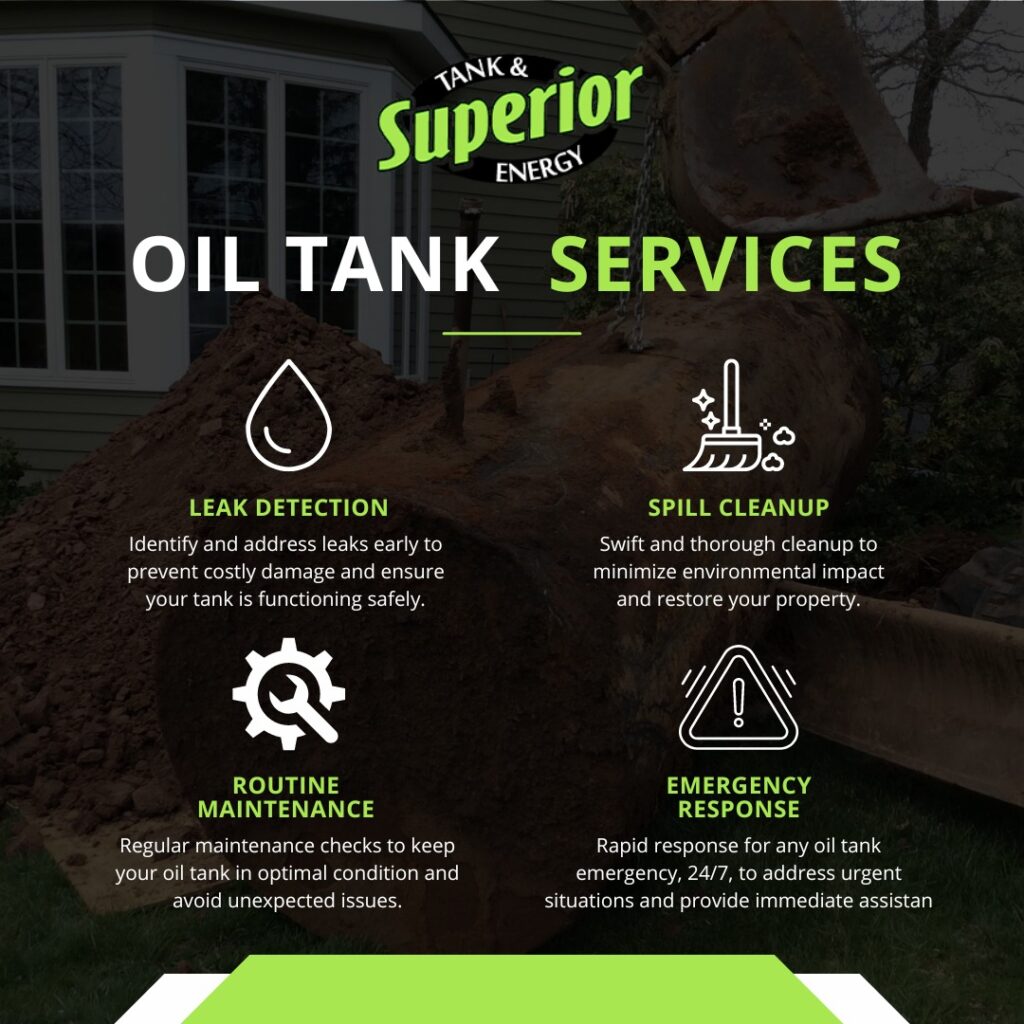- Posted by: Superior
- 0 Comments
When Should I Have My Oil Tank Inspected for a Replacement?
When Should I Have My Oil Tank Inspected for a Replacement?
Your home heating oil tank is critical in keeping your home warm and comfortable, especially during the cold winters we experience in Pennsylvania and New Jersey. However, just like any piece of equipment, it won’t last forever. Knowing when to schedule an oil tank inspection can help you avoid costly repairs, fuel inefficiencies, or environmental damage.
Whether you live in Montgomery County or Ocean County, proactive oil tank maintenance is important for staying ahead of potential issues. Here, we’ll explain the signs that your tank may need an inspection, how often to schedule one, and what to expect from the process.
Signs It’s Time to Inspect Your Oil Tank
If you’re not sure when to replace an oil tank, one of the best places to start is learning to recognize the warning signs. Regular inspections can help you catch small problems before they turn into bigger ones.

Age of the Tank
The average oil tank lifespan is 15 to 20 years. If your tank is approaching or exceeding this range—especially if it hasn’t been inspected recently—it’s time to schedule a professional oil tank inspection.
Visible Rust, Corrosion, or Dents
Exterior rust, bubbling paint, or surface corrosion are common signs of oil tank failure. These issues indicate that the metal may be weakened, eventually allowing fuel to escape. Dents may also signal structural damage.
Unusual Odors Around the Tank
A strong fuel smell near your tank should always be an immediate cause for concern. Odors often indicate a slow leak or vapor release and should be addressed immediately by a professional. Superior Tank & Energy provides emergency oil tank services to help homeowners respond quickly and safely to these issues before they escalate.
Leaks or Oil Stains Near the Tank
Oil tank leak signs include visible puddles, stains on the ground or floor, or a sheen on nearby water. These leaks can be hazardous and often indicate a replacement is needed.
Inefficient Heating or Higher Fuel Usage
If your system isn’t heating as effectively, or you notice a spike in oil usage, it could be a sign that your home heating oil tank is no longer functioning efficiently.
How Often Should You Have Your Oil Tank Inspected?
Most experts recommend having your oil tank inspected at least once a year, but how frequently you schedule inspections may depend on several factors, including the tank’s age, location, and usage. If your oil tank is outdoors, exposed to moisture, or in a colder climate like Pennsylvania or parts of New Jersey, it may be more susceptible to wear and should be inspected more often—especially before the winter heating season begins.
Is One Inspection Per Year Enough?
For newer tanks, annual inspections are usually enough to stay ahead of problems. However, if your tank is 15 years or older or has had previous issues like minor leaks or rust spots, consider scheduling inspections twice a year—once in the fall and again in the spring. This allows you to catch any weather-related damage early and ensures your system is ready to handle temperature shifts.
Homeowners in areas like Camden County, Burlington County, or Chester County may also need to schedule inspections more regularly due to fluctuating temperatures or higher heating oil usage during colder months. Additionally, if you’ve recently purchased a home and are unsure of the tank’s age or condition, we recommend you schedule an inspection right away to establish a baseline.
The Inspection Process
A thorough oil tank inspection involves more than just a visual once-over. A licensed technician will perform a comprehensive evaluation of your tank’s condition, checking both external and internal components to ensure everything is functioning safely and efficiently.
Visual Check
First, the inspector will examine the outside of the tank for visible signs of corrosion, rust, bulging, or dents—any of which could indicate structural weakness. They’ll also inspect the fill and vent pipes, as well as fuel supply lines, for cracks, loose fittings, or blockage. If your tank is indoors, they’ll check for signs of oil vapor or odors that may suggest a slow leak.
Assessment with Tools
Next, the technician may use ultrasonic testing or pressure testing to assess the integrity of the tank’s walls, especially if the tank is older. This helps identify hidden weak spots that aren’t visible from the outside. If accessible, the interior of the tank may be checked for water buildup, sludge accumulation, or microbial contamination—all of which can compromise fuel quality and cause damage over time.
In some cases, the technician may also take a fuel sample to test for water or sediment and inspect the tank’s supports or foundation to ensure it remains level and secure.
At the end of the inspection, you’ll receive a full report on the tank’s condition and recommendations for any repairs, additional maintenance, or a timeline for when to replace the oil tank if necessary.
What To Do If Your Oil Tank Needs Replacement
If your technician finds damage, deterioration, or warning signs of a future failure, we will recommend that you take action promptly. While repairs may be possible in some cases, significant issues often require a full oil tank replacement.
At Superior Tank & Energy, we provide expert oil tank repair and replacement services across New Jersey and Pennsylvania. From Camden County and Gloucester County to Berks County and Chester County, our team handles removal, installation, and environmental safety with care and efficiency.
Contact Superior Tank & Energy for an Inspection Today
Staying on top of your oil tank inspection schedule can help extend the life of your system and prevent dangerous, costly issues down the line. If your tank is over 15 years old or showing signs of wear, don’t wait—schedule a professional inspection today.
Whether you’re in Lehigh County, Hunterdon County, or Delaware County, Superior Tank & Energy is here to help with all your oil tank maintenance and replacement needs. Contact us to learn more or book your inspection with a trusted local expert.
Categories
Recent Post
Archives
- December 2025
- November 2025
- October 2025
- September 2025
- May 2025
- April 2025
- March 2025
- February 2025
- January 2025
- September 2024
- September 2023
- July 2023
- May 2023
- March 2023
- January 2023
- November 2022
- July 2022
- May 2022
- March 2022
- January 2022
- November 2021
- September 2021
- July 2021
- April 2021
- December 2019








Recent Comments